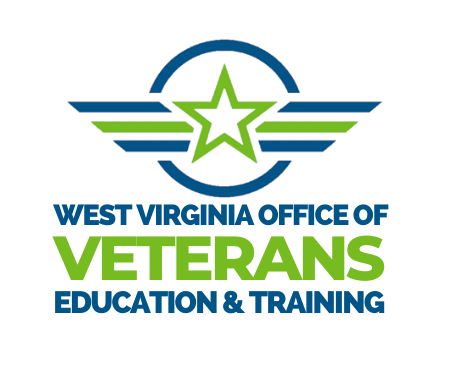To reaffirm our state’s commitment to meeting the unique needs of student veterans, the Office of Veterans Education and Training is launching a new initiative, the “5 Star Challenge.”
About this initiative
The 5 Star Challenge is a call to action for West Virginia’s public two-year and four-year institutions and their coordinating agencies to adopt a set of exemplary standards for supporting student veterans. Institutions that accept the challenge will have until September 1, 2016, to implement each of the five tenets (stars) of the challenge.
The challenge pays homage to the military tradition of issuing “challenge coins” to military service members who exemplify the values and standards of their military units. Participating institutions will be presented with a “5 Star Challenge Coin” that will be provided by the West Virginia Office of Veterans Education and Training (OVET).
The presentation of the Challenge Coin will signify a compact between the institution accepting the challenge and student veterans. Participating campuses will host a commitment ceremony during which the coins will be exchanged via a handshake between the institution’s student veteran organization’s president and the institution’s president, provost, or other high-ranking official.
OVET encourages institutions to host their Challenge Coin ceremonies during the week of Veterans Day, 2015.
Institutions that accept the Challenge will be provided with a detailed guide and ongoing training on how to succeed in implementing each Star in the Challenge, as well as assistance in promoting and carrying out the commitment ceremony.
The 5 Star Challenge
Commitment from institutional leadership
The President’s Office at each institution will demonstrate its commitment to student veterans/dependents by:
- Signing a commitment to and implementing the Principles of Excellence program, as outlined by the U.S. Department of Veterans Affairs;
- Signing a commitment to and implementing the 8 Keys to Success program, as outlined by the U.S. Department of Education and the Department of Veterans Affairs; and
- Reemphasizing compliance with West Virginia’s Veteran-Friendly Campus Act enacted by the West Virginia Legislature.
Access and affordability
Institutions will foster increased access and affordability by:
- Implementing and actively promoting resident tuition provisions of the Federal Choice Act enacted by Congress;
- Actively promoting and screening for tuition waiver availability for eligible dependents of fallen service members; and
- Ensuring timely execution of VA Yellow Ribbon agreements and applicable Department of Defense Memoranda of Understanding.
Academic support
Institutions will foster increased academic support by:
- Establishing priority registration for students who are using VA education benefits;
- Ensuring advising staff and student veterans/dependents are aware of specific concerns associated with use of VA education benefits; and
- Collecting and reporting appropriate data to help identify potential obstacles impeding timely graduation.
Cultural and social support
Institutions will foster increased cultural and social support by:
- Ensuring key supportive staff are selected and trained to serve as a resource for veterans and that these staff members are clearly identifiable on campus;
- Providing training to faculty, administrators, and staff to assist them in understanding and meeting the unique needs of student veterans;
- Ensuring that a forum is available for sharing the profound experiences many student veterans/dependents possess in order to promote a culture of awareness, understanding, and support; and
- Connecting student veterans/dependents with one another, staff, and alumni that share a similar background.
Community collaboration
Institutions will increase collaboration with the community by:
- Identifying and networking with area stakeholders;
- Hosting events on campus to increase awareness of veterans resources and opportunities; and
- Identifying and promoting service opportunities and recreational/social activities that will foster reintegration into the community.
Share this Post

